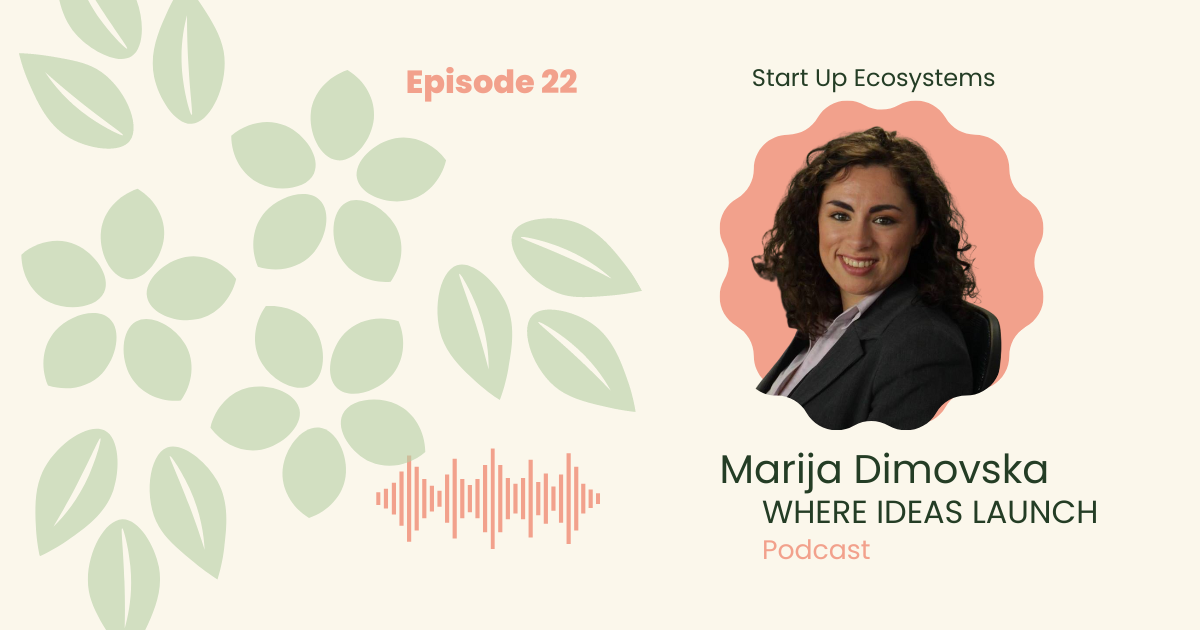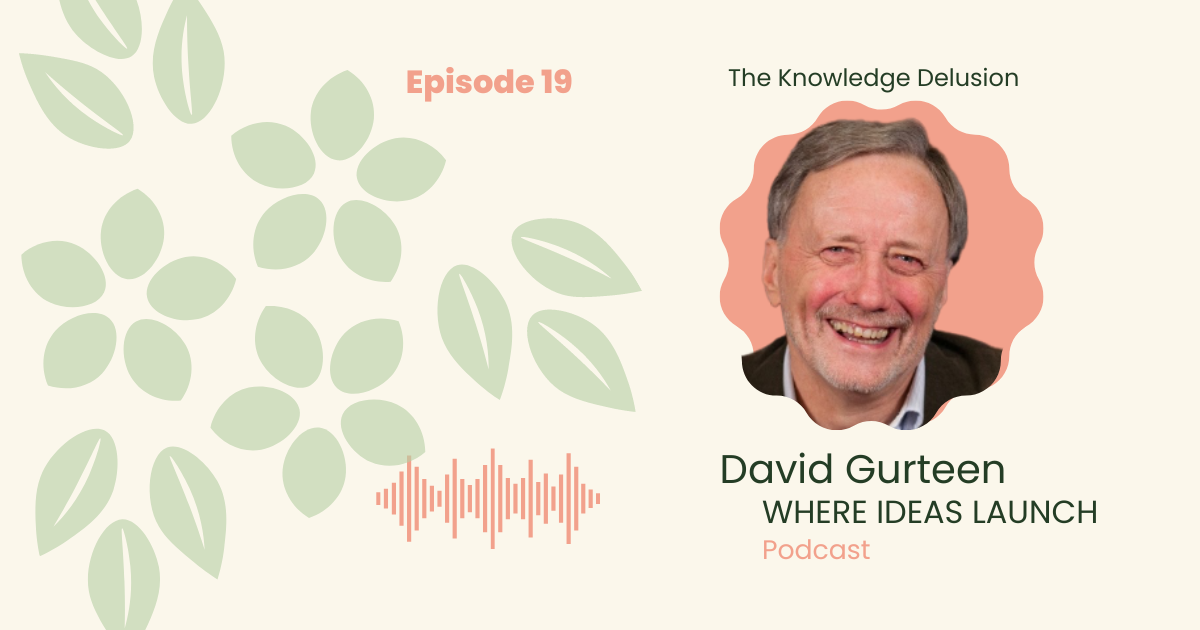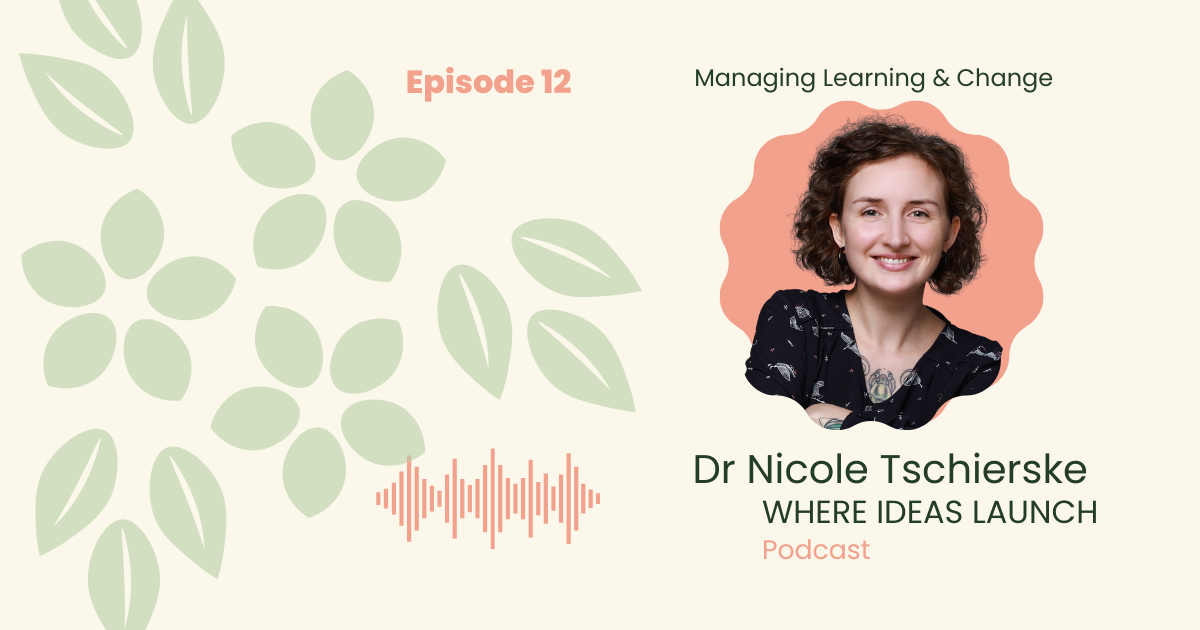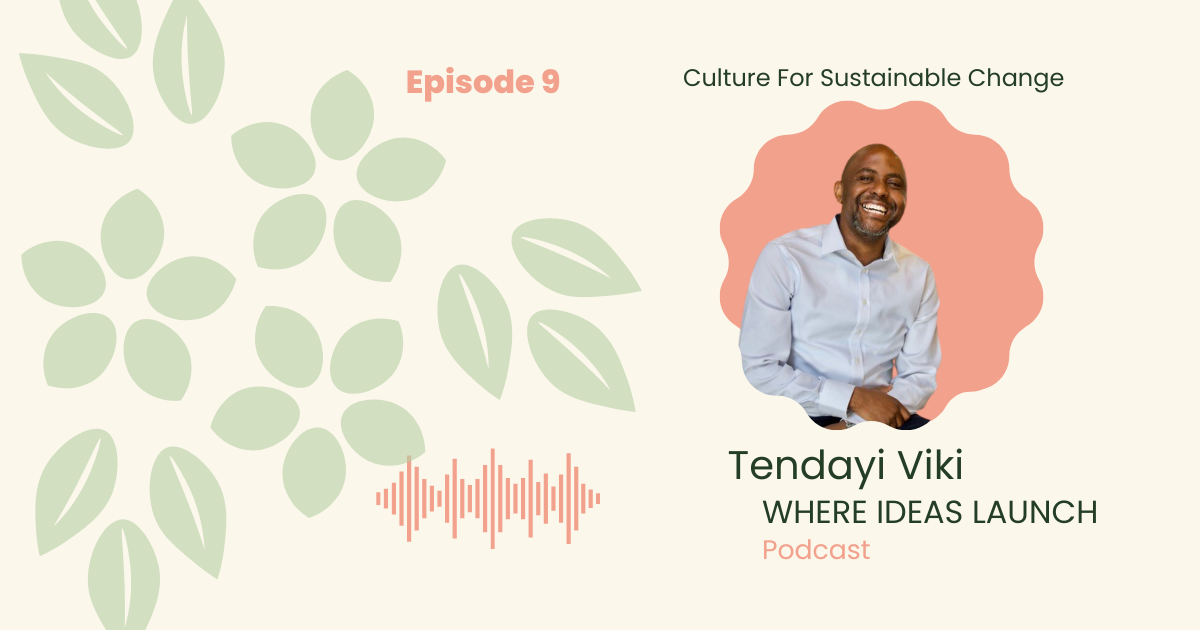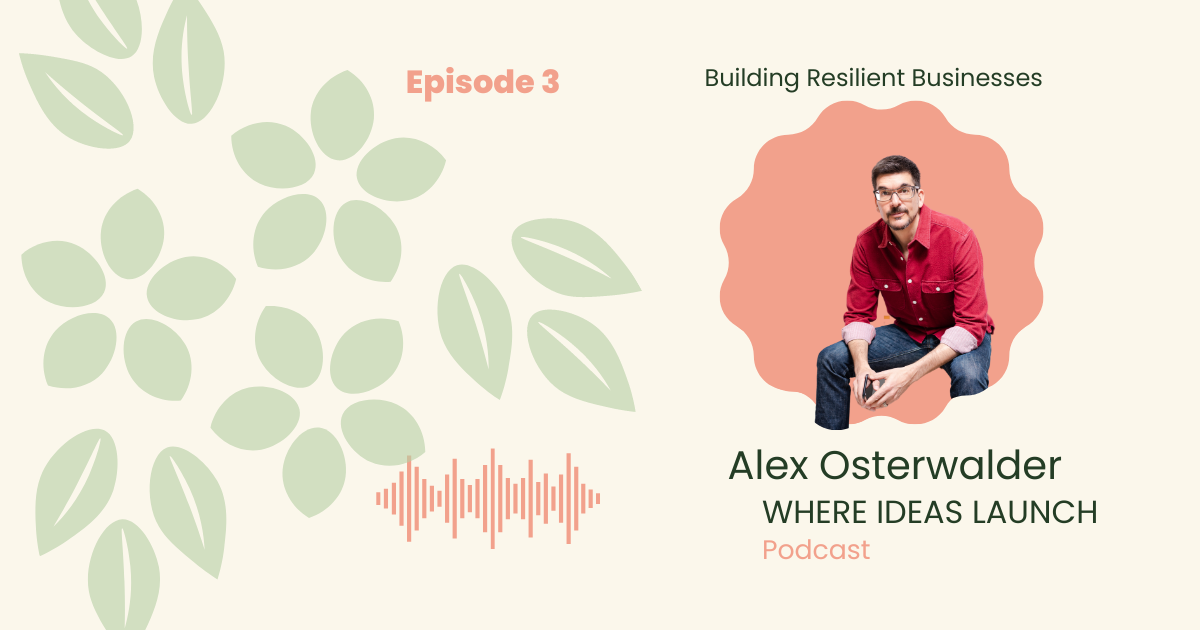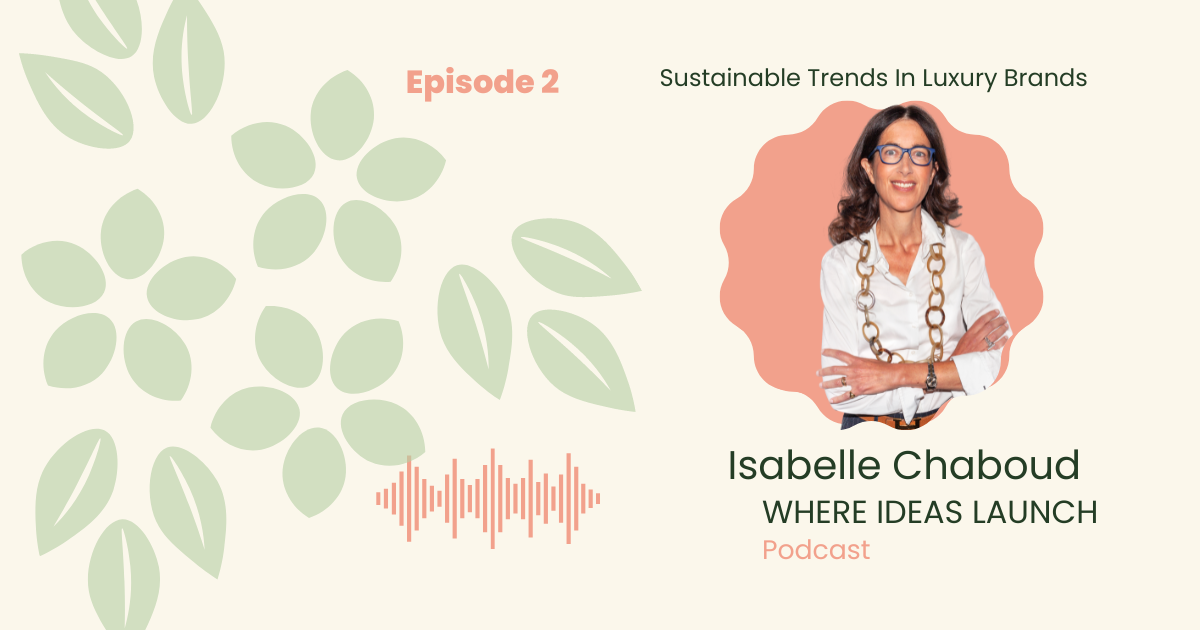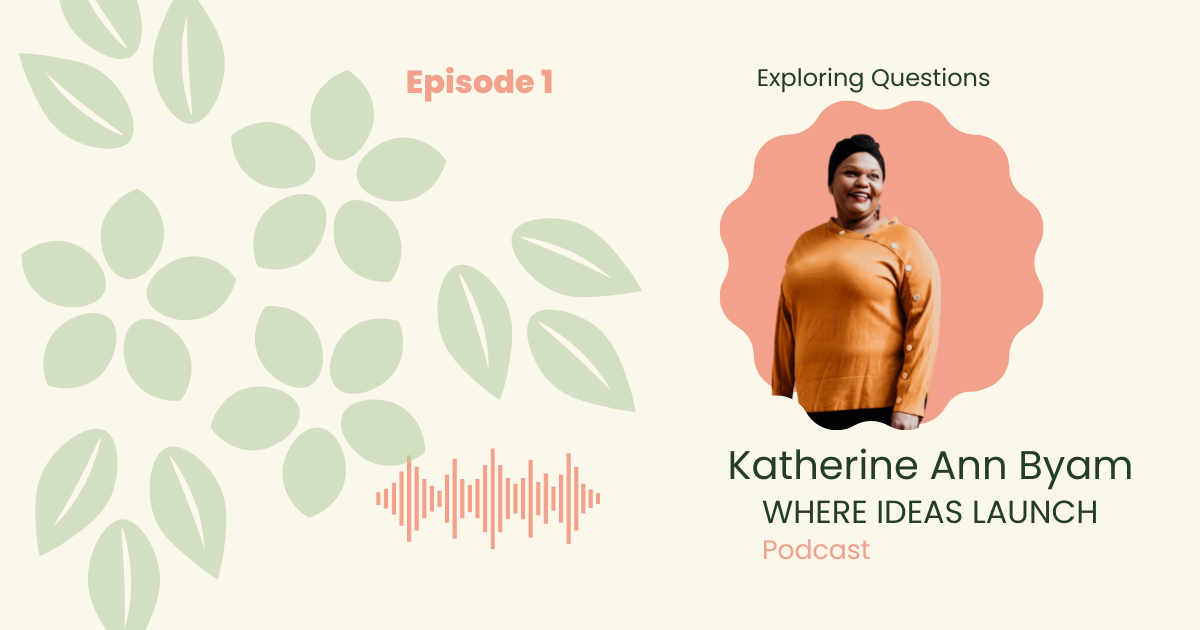024 A Perspective on Strategy
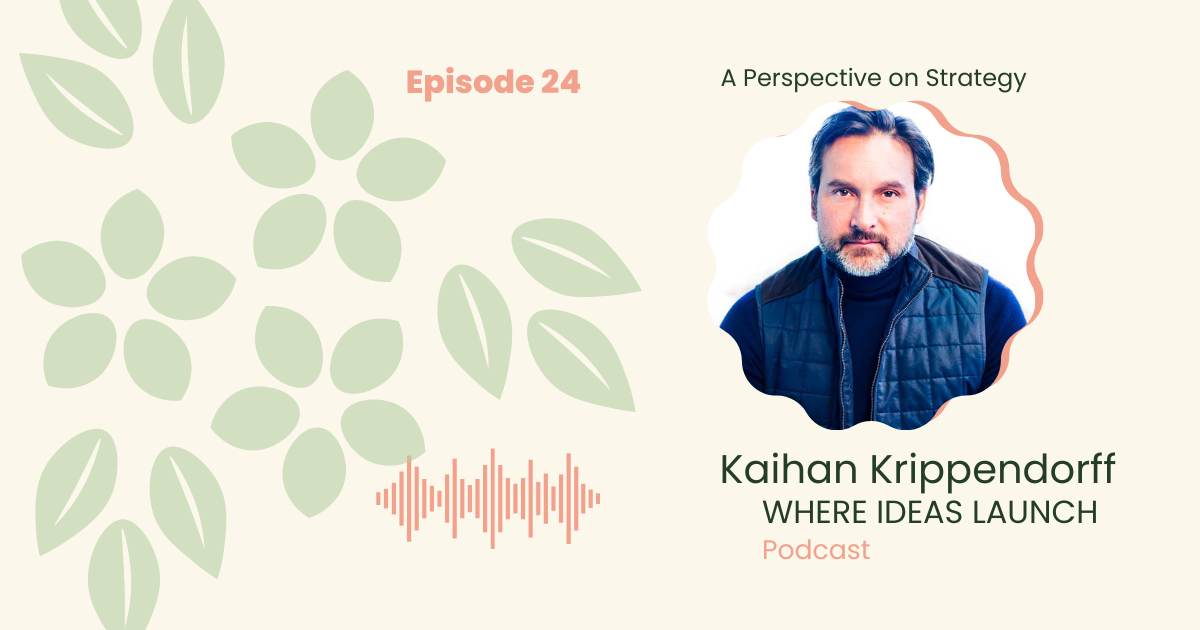
About this Episode
We talked to Kaihan about the current strategy and innovation landscape, and what companies are doing to meet the trend and wider social expectations of them. Kaihan Krippendorff has made a commitment to helping organizations and individuals thrive in today’s era of fast-paced disruptive technological change. He began his career with McKinsey & Company before founding the growth strategy and innovation consulting firm Outthinker. His growth strategies and innovations have generated over $2.5B in revenue for many of the world’s most recognizable companies including BNY Mellon, Citibank, L’Oréal, Microsoft, and Viacom. A best-selling author of five books, most recently the Edison Award nominated, Driving Innovation From Within: A Guide for Internal Entrepreneurs.
He is a member of the prestigious Thinkers50 radar group – A global selection of the top 30 management thinkers in the world to look out for. Thinkers50 also recognized Kaihan as one of the 8 most influential innovation thought leaders in the world considering him for a Distinguished Achievement Award in Innovation – given to the person in the world that has contributed the most to the world’s understanding of innovation in the past two years. Kaihan is currently ranked the Thinkers360 #1 Global Innovation Thought Leader and the Thinkers360 #1 Global Business Strategy Thought Leader in 2019.
Kaihan also founded The Outthinker Strategy Network, a community comprised of strategy executives from the world’s top Fortune 500 and private companies that keeps him ahead of the pace of disruption and up to date on trends, threats, and opportunities across industries.
Amidst his dizzying schedule of keynote speeches, consulting projects, ongoing research and writing, Kaihan still finds time to teach at business schools throughout the US and internationally (including NYU, FIU, and Universidad Americana). Regularly featured in major business media outlets Kaihan is an advisory board member for a blockchain-powered transportation platform, an international food processing/exporting company, and a B-corporation focused on sustainable products and lifestyle.
He holds degrees from the University of Pennsylvania School of Engineering, Wharton, Columbia, and London Business Schools and a doctorate in strategy. With a mother from Bangladesh and a father from Germany, Kaihan brings a holistic, diverse, and global perspective to everything he does. His work has brought him to 58 countries all over the world. He speaks three languages and has lived or spent significant periods of time in Asia, Africa, Latin America, Europe, and the Pacific. He lives in Greenwich, Conn., with his wife and three children.
Subscribe to Where Ideas Launch
Episode Transcript
Katherine Ann Byam 0:02
Welcome, Kaihan, to Where Ideas Launch.
Kaihan Krippendorff 0:52
Katherine, thank you so much for having me here.
Katherine Ann Byam 0:54
Wonderful to have you here. I discovered your work at the Outthinkers Summit 2020. I was just emerging from the shock and paralysis of facing the pandemic in March. And I found this summit really enlightening. I was wondering if you can share with my listeners more about the summit and whether or not you're carrying it on this year as well?
Kaihan Krippendorff 1:14
Yes. We definitely want to carry it on again. We probably won't do it (one year would be in April,) we're probably going to wait a little bit longer, maybe into the summer. But we had never run a summit before. We suddenly discovered that all of my speaking opportunities suddenly disappeared. Right? My calendar was completely empty. I was sitting in my office with my colleagues. And we looked around and said, "Well, okay, so what are we going to do?" And we thought, you know what, there are probably other thought leaders who suddenly have availability, and here's a chance for us to do something right.
There are going to be people hurting, There are going to be nonprofits that are looking to help those people that are hurting. And we have all of these great speakers. And then we have people sitting at home thinking, "look, what am I going to do?" Why don't we combine those three things? And we reached out to the top thought leaders that we knew and said, "Hey, would you be willing to participate in this charity summit, and just give your time for free, volunteer it, and we're gonna raise all the money that will go to charities to help people deal with COVID?" And so it was really kind of a last-minute pivot idea that we've never done it before. And somehow, just through a kind of passion and not sleeping, we pulled it together in the course of a few weeks. That you were part of that?
Katherine Ann Byam 2:30
Yeah, it was a great resource. And I think it actually changed my whole thinking. I found that at the right time. I had gone through my own journey of "Oh, my God, I just started a business. And now this." So it was quite a savior for me. And I wanted to take us to another topic and another burning platform beyond the pandemic, which is this topic of sustainability. And we've read that there is an idea that we are burning through resources 1.75 times their rate of natural regeneration. And I wanted to know, from your perspective, what are the implications of this on traditional strategy?
Kaihan Krippendorff 3:07
You know, I think that there has been a sea of change that has suddenly accelerated in the area of strategy where, since the 1930s, and 40s strategy has been optimized to maximize shareholder value. And companies are realizing. They didn't realize and we've been tracking this trend for about a decade or more that if you only focus on shareholder value, then even if you're after shareholder value creation over the long term, you create resistance for your growth.
You know Walmart has great difficulty less so now, but for a period had really great difficulty just putting down another store because they weren't good for the community - maybe purely out of self interest, so be it. And I don't know what their interest was. But even if it were out of self-interest, they say - if we're going to take a long term perspective, what we need to do is to create a more sustainable strategy -one that doesn't only benefit us, but benefits other stakeholders, a strategy that benefits the community, employees, society, the environment, the world.
That is the ultimate strategy because then you don't have competition if you will. And so, we're starting to see this suddenly accelerate the awareness among consumers and investors are growing investor bases that are of professional investors who are investing in companies who have sustainable strategies. We have big companies turning into public benefit corporations. We have multiple public better portfolio benefit corporations going public. I think in just last year in the US, there were five such companies. I'm on the advisory board. We've invested a little bit into one of the first B corps and that is the only sustainable future. And corporations are a stakeholder that play a role and they need to participate with other stakeholders in society.
Katherine Ann Byam 4:55
What are your thoughts on ESG and whether or not it changes anything further?
Kaihan Krippendorff 5:02
I think it is critical. I think that the UN Sustainable Development Goals have shone light on the needs of global imports. What I think ESG needs to elevate to is “to look beyond the purpose, right?” It is one thing for Unilever, Procter and Gamble to say, "one of our goals is to cure hunger to rid the world of hunger." That is great. But you need to inline incentives.
You need to reach further. You need to say, "if that's really my goal, I'm going to no longer pander to investors who are after short term cash flow. I'm going to attract investors who also care about that because they're going to support those initiatives and your business model."I am not going to make money from things that would motivate my company, my people, while I'm here or three generations later from doing something that's inconsistent with that. Like Facebook, they make money from selling advertisements. And they do that by just creating engagement. The easiest way to create engagement is to get people into arguments. So even if they are after something that is more of a conversation, they are financially motivated so we need to look at business models to really live what ESG potential is I would say.
Katherine Ann Byam 6:27
It's a fascinating topic. And I think it's such a great platform now for a lot of businesses, not just the big ones, but for startups as well to really think about sustainability and the way to design their business models upfront to address these needs even in terms of circular business models.
Kaihan Krippendorff 6:47
Yeah. And if I could just add on to that, I think the real opportunity is for the startups and maybe startups within companies as well. But I think that successful businesses came to be - it started off with good, let's go back to 30 years. You created a business because there was an existing need and that someone was fulfilling. And you went in with a better product, you stole market share away from them. That was the Michael Porter market share competitive focus strategic approach.
Then you move to create new needs, right. That's kind of the blue ocean approach, right. But I think what we're moving to is creating profitable solutions to society's needs. And if we look at successful startups, they increasingly are. That's their mindset. There is a problem with water availability, with equality, with hunger and food availability. What is a profitable solution to that?
Katherine Ann Byam 7:50
Yeah, I want to pivot a little bit into innovation. And for me, it goes very hand in hand. I feel as a strategist, sustainability and innovation are now almost one thing in the world that we live in today, but you argue that employees, more so than entrepreneurs, are society's primary innovators, and I wanted to discuss that. Why is this in you?
Kaihan Krippendorff 8:11
I did research. I looked at the 30 most transformative innovations for the last 30 years. This is from my most recent book and this is about a vetted list - thousands of submissions, a panel of professors, and they kind of said the big things that are important that have really impacted this side in the last 30 years are the internet, email, MRIs, DNA sequencing, right? These big ones, not the “like” button on Facebook, not even “search” from Google, right? - the big ones.
And then I just backtracked, and I said, "Who conceived of the idea?" and who then developed the bill and who launched it, what I found is that 70% of those innovations were conceived by employees, not entrepreneurs. And if so, what that means is with without employees innovating, you would not have a phone, a mobile phone and internet, you'd not have email, you're not be able to get an MRI, you couldn't get a stent, we'd live in a very, very radically inferior world if it weren't for employees.
Not only possible, but the truth that employees are involved, that doesn't take anything away from entrepreneurism. I want to say entrepreneurs play an important role. But we tell stories about entrepreneurs. You look at lists of most famous business people, most innovative people, it's all a lot of them are entrepreneurs. They happen to be mostly white men which is a whole other issue. But we don't tell the stories about like, you know, Heather at TIA, who came up with a program to get people with autism jobs and get them into society. We don't tell those kinds of stories of the intern entrepreneur. And so one of my missions is to really start shifting our narrative around what innovation is and who the entrepreneur is and celebrating employee entrepreneurs. Sorry, I could talk about this for a long time.
Katherine Ann Byam 10:05
That's fantastic. Now, I think there's a side of social entrepreneurship as well that these people are kind of unsung heroes. They're doing sort of handcrafting, or they are trying to make a difference in their local communities. I recently watched a show on Amazon called “Living the Change” where they were talking about regenerative agriculture and about these communities that were doing time banking and having their own currency in their small local area and stuff like this. And I was wondering, what are your thoughts on this type of sort of social entrepreneurship and what it means for the wider picture?
Kaihan Krippendorff 10:41
I think it's critical and huge. And I think it's increasing not only because of the need and the awareness, but also because of the goals of the workforce today. The goal of the workforce for my parents was to get a stable job that gives you a salary that gives you retirement. And now, the goal is to make a difference, even if we make less money. And that doesn't mean you should have to make less money, but I also think that there have been certain strategic concepts that have been introduced.
And one of the things we do is we organize a peer group of Chief Strategy Officers. So I get to spend time with heads of strategy for companies, and we talk about the emerging concepts. And this whole idea from Clayton Christensen of "Jobs to Be Done," I think it opens things up like you can say that the idea of creating a local currency becomes strategically a possibility when you focus on the job to be done by currency as opposed to thinking of working within the existing system. So we're seeing innovators starting to think outside of the bounds of existing categories and framework systems.
Katherine Ann Byam 11:55
Yeah. It's really fascinating. And I know we can go on about this for a long time. But my next question for you is "what are the barriers to innovation in firms, let's say outside of Big Tech and Big Pharma? What are the sort of barriers that are holding firms back at the moment?
Kaihan Krippendorff 12:12
In my book, I laid out seven key barriers. I interviewed 150 people. And you know, I won't go through all seven here. I'm happy to but I would say like the big ones are - first, that companies ask people to innovate, but they don't tell them what the strategy is. So they activate this excitement of innovation. And then these people come up with products that aren't consistent with our products or pricing schemes that aren't consistent, or brands that aren't consistent, and they get rejected, and then people grow disheartened. And then they give up, right? The second big barrier is really around the business model.
And the unique challenge for an internal innovator is that they work within an existing business model. The way that you want to distribute your innovations may not be consistent with the way that your company is currently distributing their products. The culture you want to build around your innovation might be different from the culture that you operate in. And that often appears as evidence or reasons why we have these innovation antibodies that prevent new ideas from growing inside the established companies. But the innovators I interviewed, they view that as part of the problem solving process. How do you redesign the entire business model so that it works inside the company. A heart transplant surgeon won't just take someone's heart and just stick it in your body and get mad at you because it was rejected. Right?
They think carefully about how to remove their rejection. So that's the next skill. And the final thing I would add is just the hierarchical, centrally planned system that dominates most companies. So most companies are organized like centrally planned economies, right? We have one central authority that decides where resources go, where talents go, what you can work on. And we know that that doesn't work in the broader economy. So what we're starting to see is explorations of new organizational models that look more like ecosystems, look more like democracies, look more like communities, look more like platforms, look more like marketplaces. And we're seeing these other forms of human organization coming into the mix. And so but still, most companies are dominated by just one hierarchical top-down organizational framework that restricts creativity and experimentation and therefore, innovation.
Katherine Ann Byam 14:34
One more question, but how can we take this sort of innovation and advanced learning into the public sector and into how governments operate as well? Because I feel as if there's a big burning platform there also.
Kaihan Krippendorff 14:49
Yeah. So my mother's from Bangladesh and the economy there is (I don't want to say dominated by) but the NGO sector runs a lot of the services and the activities that shape society there. So I think that that is sort of the exemplar of what's possible when you really have the “for profit-government” cooperation. It has been shown for the long term trend, that the most impactful innovations are coming increasingly through public-private partnerships. And that's been a trend for 20 years.
And so the kind of problems that we need to solve are too big to be solved by just the government or just entrepreneurs or just established companies. What we need to do is we need to bring our solutions together and collaborate together to also have diversity of thoughts, diversity of ideas. It also increases innovation. But just mathematically, there is not enough money to solve the problems that we need to solve if we just look at solutions from just the government, or just nonprofits or just corporations.
Katherine Ann Byam 16:04
Really interesting and exciting. Why don't you tell our listeners about your latest book so that they can have a check?
Kaihan Krippendorff 16:10
Yes. So it's called Driving Innovation from Within: A Guide for Internal Entrepreneurs. It basically lays out a process and a set of tools for you to be a more effective internal innovator.
Katherine Ann Byam 16:11
Perfect.Thank you very much for joining us in the showcase. And it's been wonderful to have you, thank you, and thanks for the work that you do.
